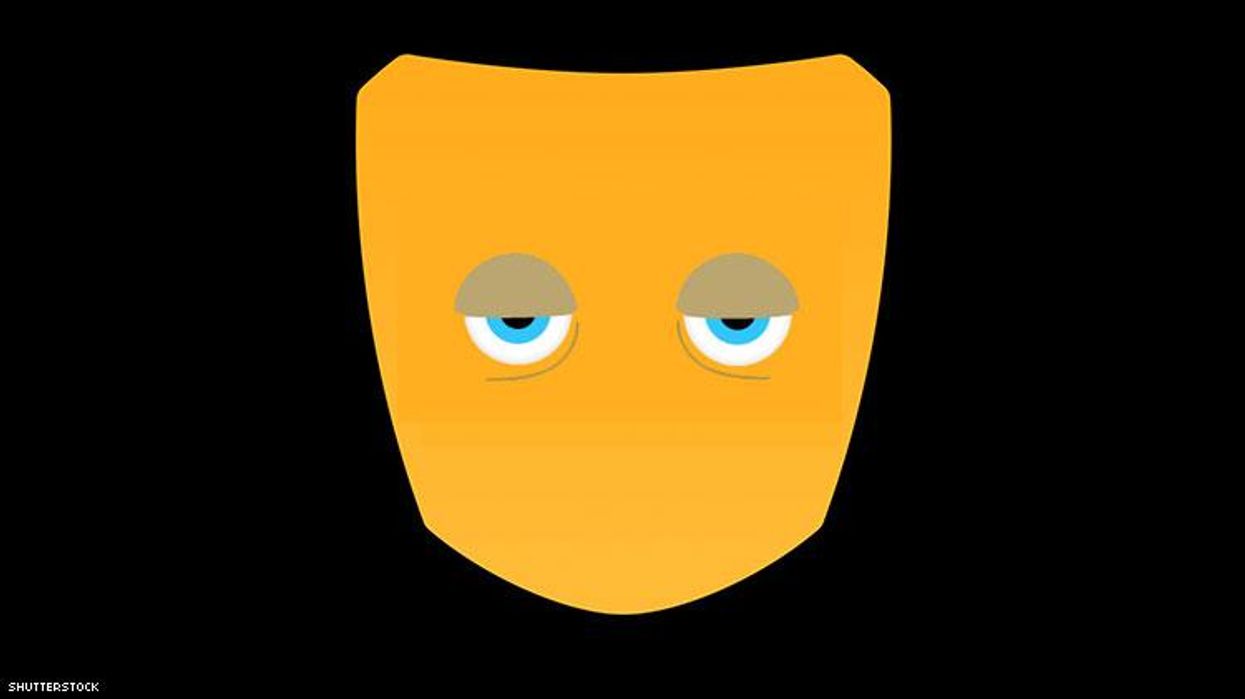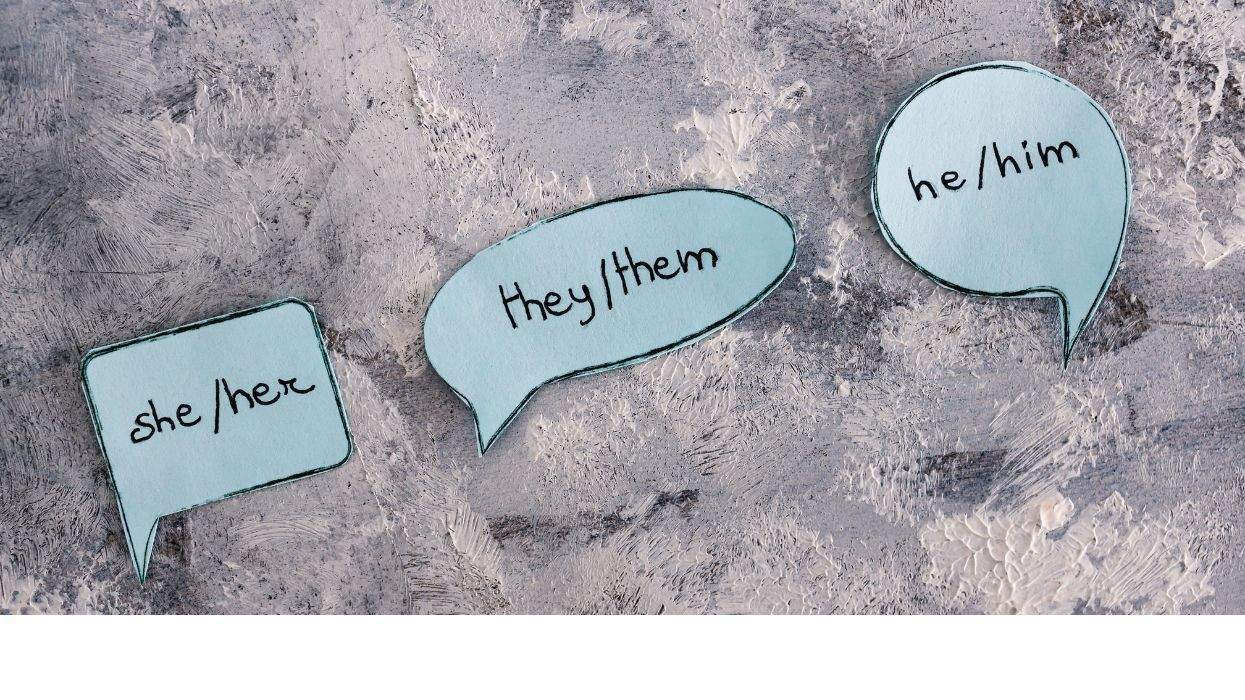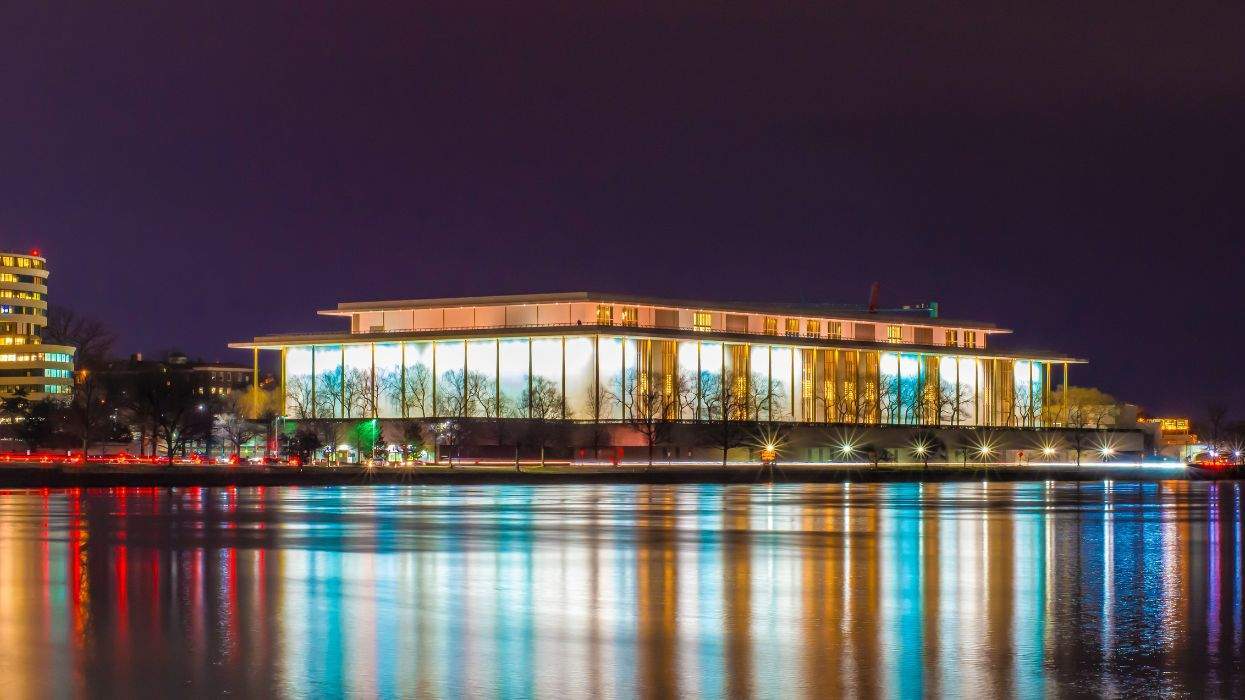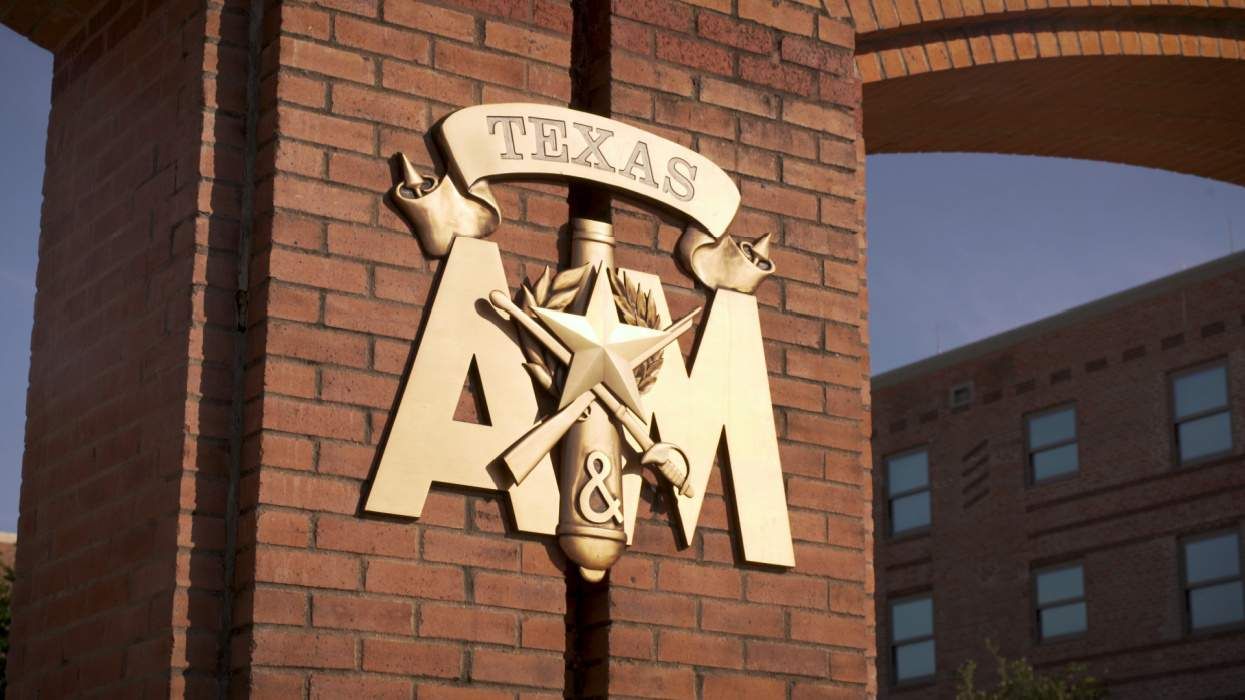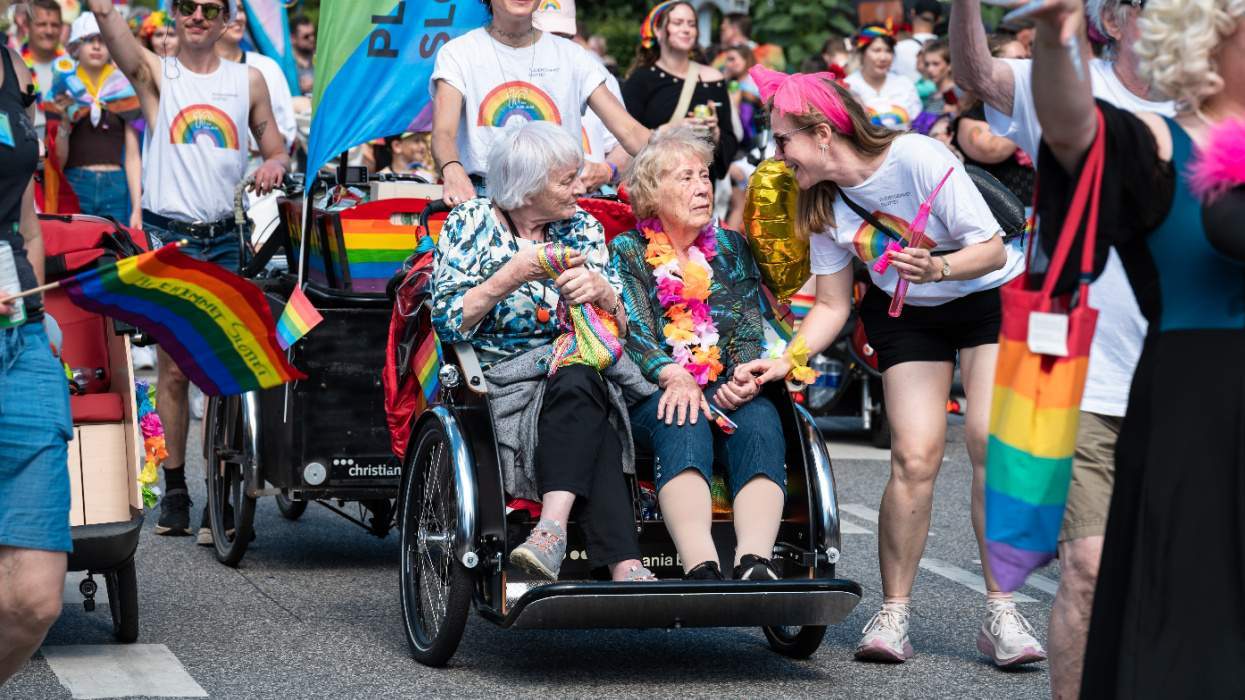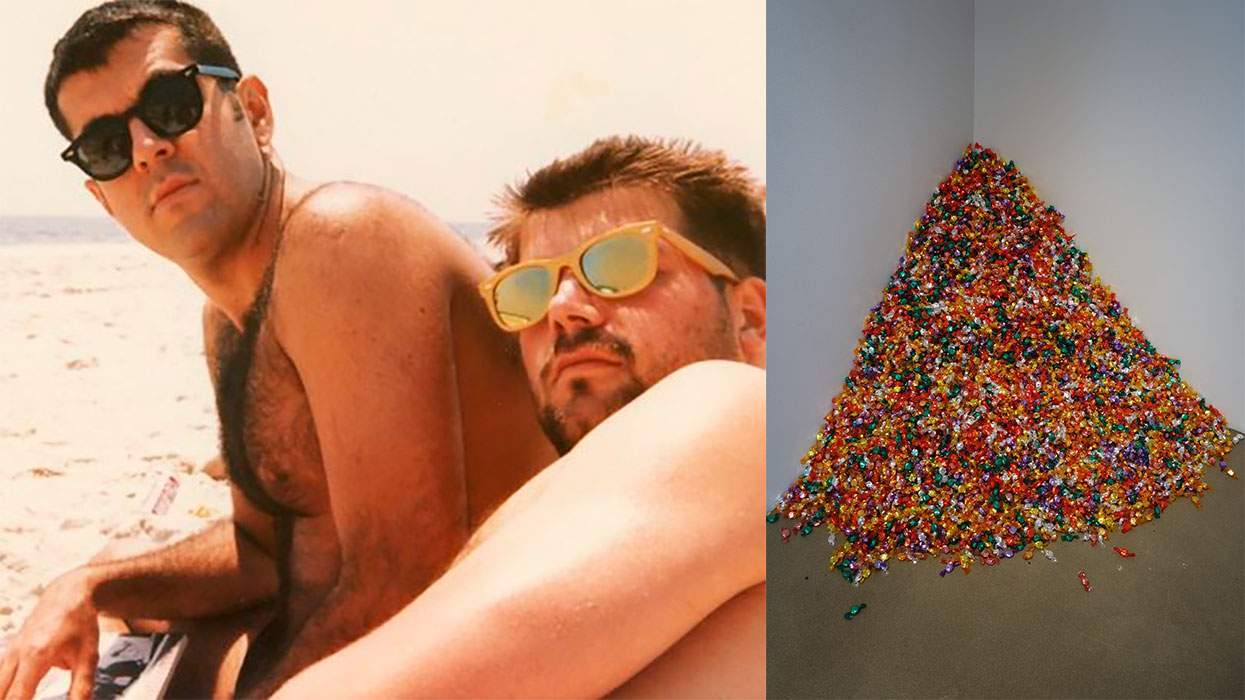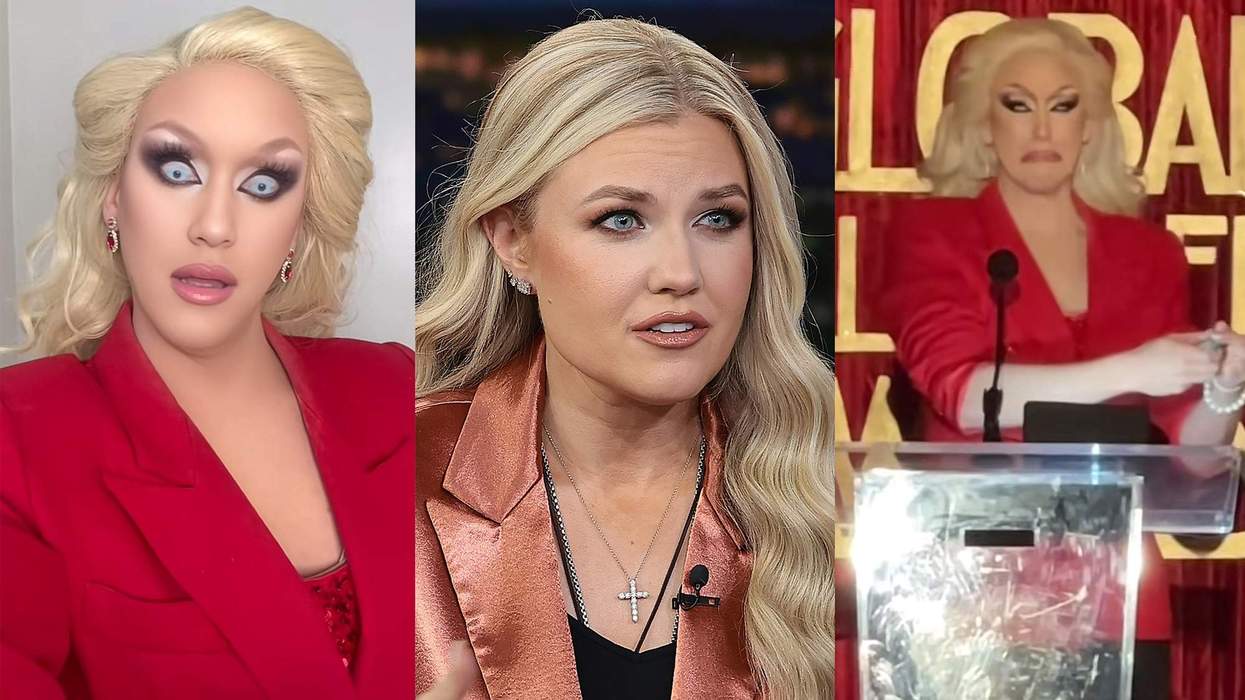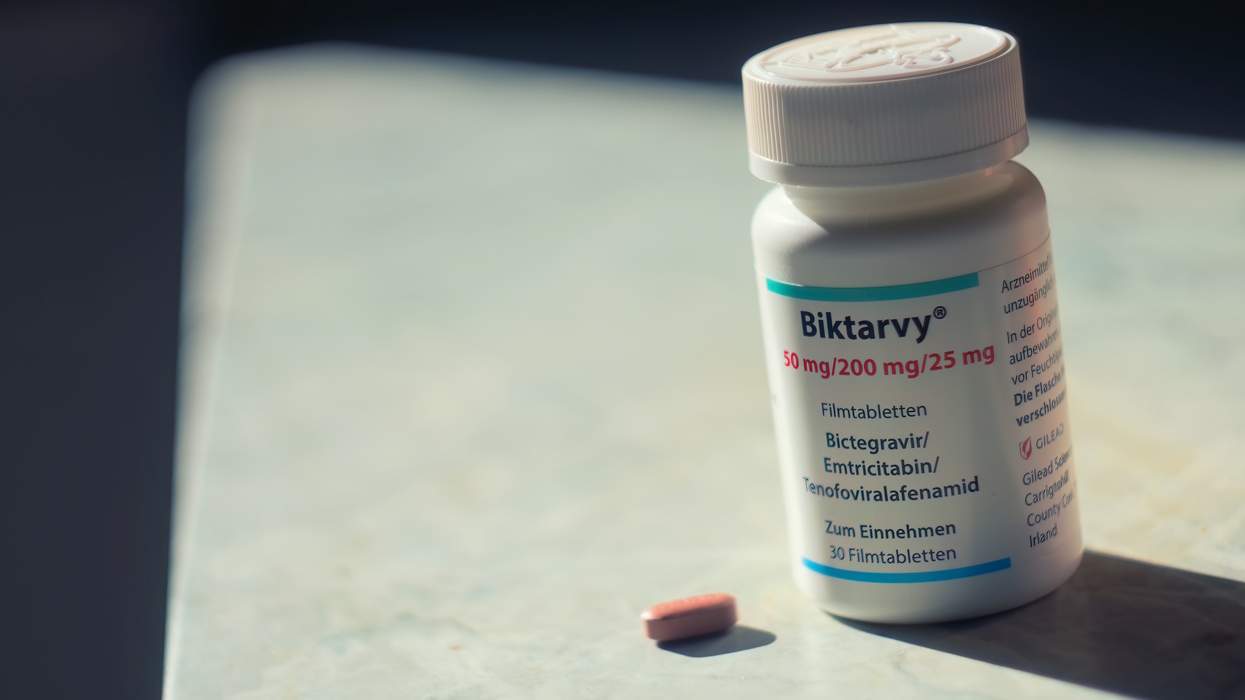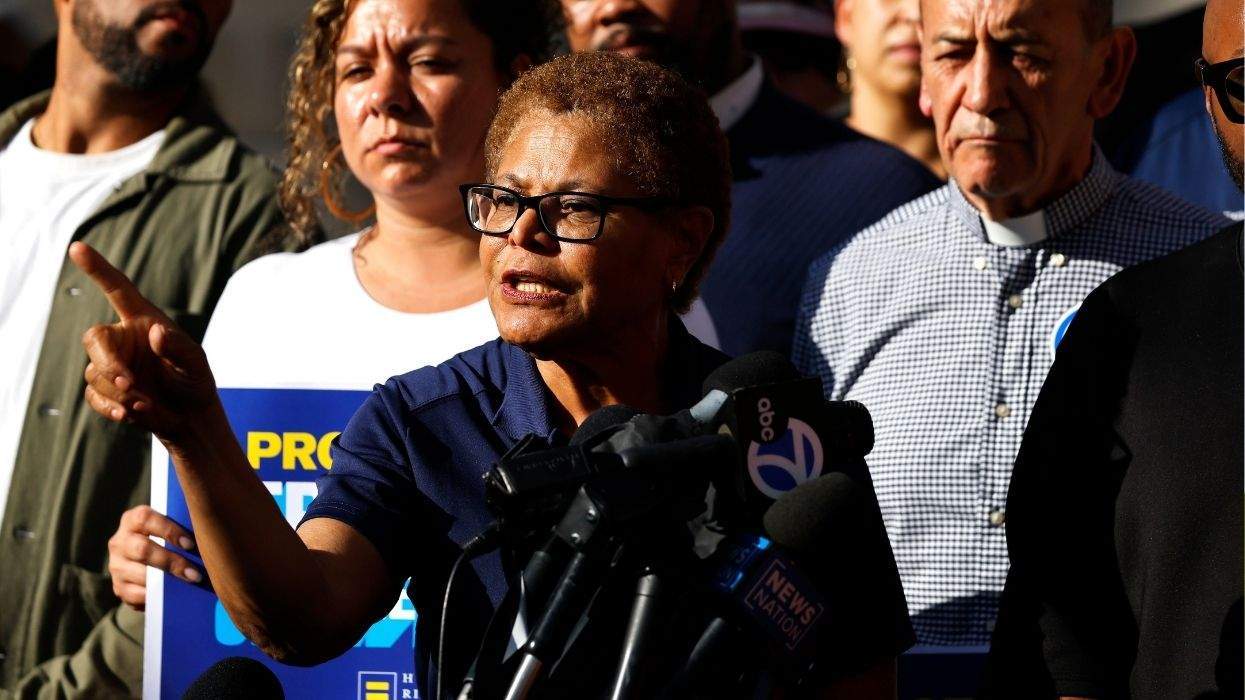Grindr was born on the heels of the groundbreaking iPhone 3G in March 2009.
Apple had added GPS to their latest iPhone, and geolocative services like Google Maps, Foursquare, and Gowalla (RIP) were helping the masses better explore their environments. Adapting that feature to cruise men was brilliant and intuitive, but also radical: Apple proclaimed the future was embodied within this shiny tech toy, and Grindr essentially hijacked it for dick appointments.
To contrast how astounding a hookup app like Grindr was at the time, a few years before its release, I'd visited a gay bar in Manchester, U.K., where patrons used three clunky desktop computers set up on a counter to connect to sites like Manhunt. It was once common to see computers at gay bars around the world as the internet became a safe haven for queers globally.
But then came Grindr, a tool that meant you could now meet wherever you had a data signal and everything changed.
Grindr co-founder Joel Simkhai in interviews often stressed the app was for networking, in order to project a level of respectability. He shared with NewNowNext internal survey results that showed twice as many users had found friends on the apps than found dates, reinforcing that "people are using this to meet other people and build relationships, build friendships and discover other people."
That line of thinking was necessary for the media and investors, given Apple's nervous nature around sexual content, but it elided how most users approached Grindr.
Early on, Grindr was the kind of app you giggled with your friends about, discussing how outrageous it was to have gaydar in the palm of your hands -- at the same time, you'd block them, coworkers, and anyone else you recognized when they popped up in your grid. To be on Grindr was to broadcast that you were looking: There was a public life and a private life, and your Grindr profile was firmly part of the latter.
The subject felt so ignoble, that when I discussed the idea for "Meet Grindr," my dissection of the app's design and the influence that had on user behavior, I received resistance online. I wanted to explore ideas like why humor didn't seem to work on the app back then and how having too many options can appear a benefit, but in fact overwhelms us, leading users to be less satisfied.
Some readers clutched their pearls at putting a spotlight on the topic, while others were disappointed the book approached the app seriously rather than being a tell-all of hookups. I wrote the book as quickly as I could, worried that the fascination with Grindr might peak and then fade. I was partly right.
But when I expected the app to flame out, something else happened. This app that at one point users couldn't stop talking about now feels ordinary, dull even.
When users robotically respond with the common refrain that they're "bored, kinda horny," they could well be talking about our approach to the app itself. It's just another tool we use, like Twitter or Instagram. We now use it because it's there.
We use it because we are bored.
Part of this was by design. As the app moved into the mainstream it had to contend with a slew of bad press, including being called the "World's Biggest, Scariest Gay Bar" and the occasional sensational story of crime happening through Grindr. In response, the company has rolled out a series of tactics to shift the narrative.
There was Grindr 4 Equality, meant to channel users toward political action. A varsity-themed clothing line that hinted at becoming a lifestyle brand. A campaign called "Kindr," a delayed response to frequent criticism of not caring about the rampant discrimination on the platform. A digital magazine Into to capture the mindshare of the queer zeitgeist. With each, Grindr wanted to highlight the community aspect of Grindr to counteract its grimy perception.
But as it attempted to normalize, an interesting thing happened: the world around it became more Grindr-like.
Grindr made cruising available anywhere and at anytime, being open about looking for sex felt more comfortable, and no longer novel in a world with Tinder, Tumblr (RIP), Twitter alts, and thirst trap Instagram accounts. It's not that we didn't use social media platforms to meet before Grindr, but now that Grindr has brought our sex lives into the open, our thirst has spread to all the other platforms we use: To only using Grindr to solicit hookups feels quaint.
In some ways the latter two have become the logical extensions of and correctives to Grindr. On Instagram, the accounts are more like the grid format of the app, with hypersexualized photos of arched backs and performative bulges.
Men can post multiple images of themselves and weave an entire narrative around their lifestyles. And it leads to action: sliding into DMs can lead into sliding into other places. (In a nod to how visual Instagram is, you can link your account on Grindr, and, interestingly, years ago, building an Instagram clone was discussed.)
On Twitter, users can share nudes in a way you can't on Grindr, breaking free from the requirement of being within a radius and distributing at scale. Alt accounts, the private, secondary accounts users create to provide shielding from the public nature of Twitter, allow us to have the conversations and a sense of camaraderie that Grindr can't.
Although Grindr still has a place within this ecosystem, compared to the amount of attention we can get from larger social platforms, it can now feel inert.
Even how we talk about Grindr, without shame in public, shows just how mundane the app has become. We screenshot our Grindr conversations and share them widely on social networks. A user who engages in dismissive, usually discriminatory, behavior can get outed. And a user who manages to turn us on, that badge of honor gets posted as well. Grindr is so utilitarian, it's become the Google Maps of being gay.
But just as following Google Maps without thought might lead you into driving into a lake, so might using Grindr without intention.
The conversation around privacy at Facebook has forced us from blindly assuming our relationship with technology: Are we demanding enough of Grindr around privacy, location, and security, especially as the app becomes more inclusive, with users from more vulnerable communities such as disabled users, and trans and nonbinary users.
It's incumbent on us to keep thinking about how we approach the app. No software is perfect, but more than a few times the app has demonstrated serious vulnerabilities. In 2015, a third-party service named "Fuckr" enabled anyone to triangulate the locations of hundreds of Grindr users with disturbing accuracy. Built on top of Grindr's API, Grindr tried to shut Fuckr down, but since it was available through GitHub, the code had already duplicated ("forked") too many times for the attempt to be successful.
As late as 2018, the company was still battling Fuckr. Given the sensitive content that users trust to stay within the platform, we as users have to demand what the future of the app looks like.
Beyond security risks, the ongoing conversation around the addictive nature of tech should also be applied to Grindr, which proudly boasts about how users spend hours on end on the app. The slot machine-like mechanics of the app encourage users to return again and again, as every move in location and every tap potentially unlocks the reward of a connection -- and of course there are the highs and lows in meeting up. A simple Google search around Grindr addiction shows the struggle people have, trapped in cycles of deleting and reinstalling the app.
We have to talk about if the engagement numbers are a good thing, especially when a gaming company has purchased Grindr. In a recent survey, Grindr landed at number one for app that made respondents most unhappy, with 77 percent reporting that the app left them with regret. When tech giants like Apple and Facebook are finding ways to encourage users to take breaks from the products, should Grindr follow their lead?
Technologist Anil Dash talks about how one myth around technology is that we believe in its inevitability -- that how apps and platforms are presented is the only way it can be, as if birthed into existence.
But we've seen how Grindr has and can change already: the backlash around racist language and behavior on the app pushed the company to allow reporting of it in user profiles. The incorporation of preferred pronouns, diverse gender options, and new relationship statuses in profiles demonstrates that as culture evolves, so can the app.
Our boredom isn't something to ignore then. Boredom, defined as "a state of feeling disinterested in one's surroundings, having nothing to do, or feeling that life is dull" is something for us to investigate with openness and curiosity. And it is something we can change if we are so moved to.
Because in the end, when you really think about all that time many of us have spent staring at the golden screen of Grindr, we must reflect on if we ever truly wanted to be so addicted to the app, even if we are kinda horny. We must consider what we have lost in an always-on, always-looking culture.
And most importantly, as we reflect on a decade of Grindr changing the way we connect, we must all ask ourselves: Why did we all seem to become so addicted to being 'bored?'
JAIME WOO is a Canadian writer and game developer. He is best known for his 2013 book Meet Grindr: How One App Changed the Way We Connect.
